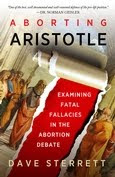 creatio ex nihilo: A Latin phrase that literally means "creation out of nothing." Augustine is credited with developing the argument that God created the world without any preexisting materials. This was in contrast to most Greek philosophers, who understood the creative act as God's ordering of eternally existing materials into the present world or universe. The value of the doctrine of creatio ex nihilo is that it maintains a clear distinction between God and the created order and also maintains that God alone has eternal status.1
creatio ex nihilo: A Latin phrase that literally means "creation out of nothing." Augustine is credited with developing the argument that God created the world without any preexisting materials. This was in contrast to most Greek philosophers, who understood the creative act as God's ordering of eternally existing materials into the present world or universe. The value of the doctrine of creatio ex nihilo is that it maintains a clear distinction between God and the created order and also maintains that God alone has eternal status.11. Stanley J. Grenz, David Guretzki & Cherith Fee Nordling, Pocket Dictionary of Theological Terms (Downers Grove, IL: InterVarsity Press, 1999), p. 32.





